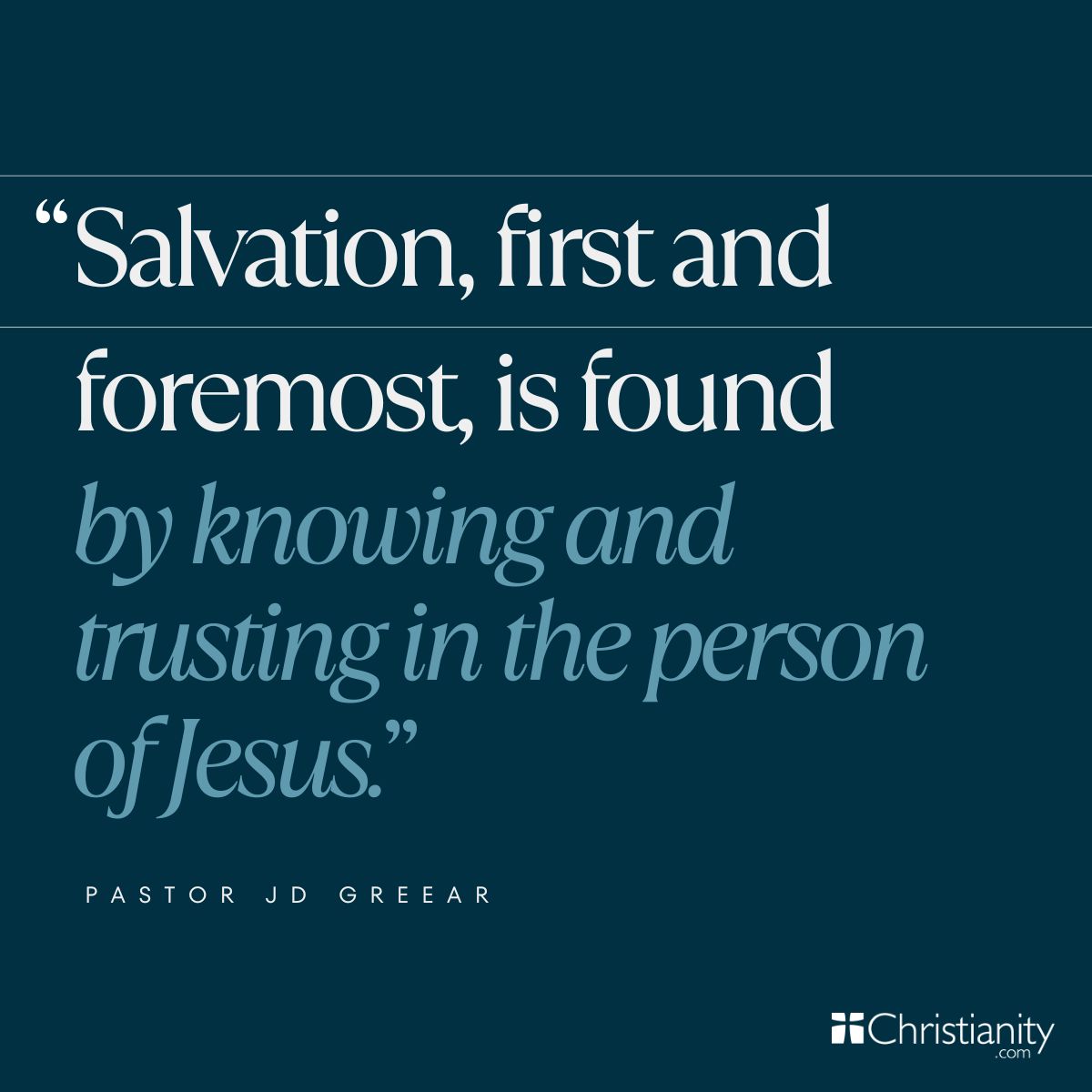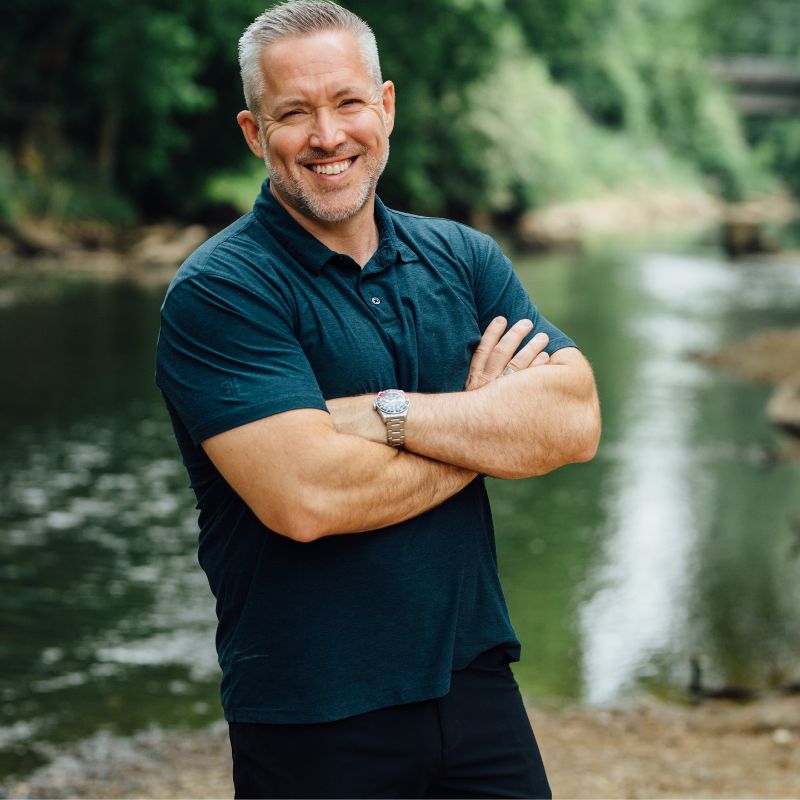
A friend of mine was a track athlete in high school, finishing in the top three of every event he ever ran.
Except one.
As he traveled to one of his first away meets as a freshman, he wanted to get in the zone, so he had his headphones on the entire ride there and during his warm-up. At one point, the coach was talking with the team and getting animated about something, but his headphones stayed on. It was more important to stay in the zone than listen to whatever the coach was ranting about.
When the gun went off, my friend took off. He said it was actually shaping up to be his best race of the year. He was making great time, and by the halfway mark, he was a full quarter mile ahead of the field.
Then trouble struck.
With about one kilometer to go, he reached a fork in the trail. One side had a blue arrow. The other had a yellow arrow. It occurred to him that this must have been what his coach was trying to warn them about.
He had two options: On one hand, if he waited for the next runner to catch up and see which way he’d go, he’d squander his lead. He might still win, but he’d lose his excellent time. On the other hand, if he guessed and chose the wrong road, who knows where the wrong trail would lead?
I’m not sure what you would do. I know myself, so I’m sure I’d do exactly what he did: He made his best guess and took off with confidence. And, of course, he chose wrong, launching out on a completely separate 7-kilometer loop. By the time he finished the course, the meet was long over. He ran past an empty stadium, past his coach, and straight onto the bus where the team was waiting. He put on his headphones and didn’t say a word.
There’s nothing worse than feeling lost—except, perhaps, the sneaking feeling that we’re on the wrong path. And in John 14, Thomas had that feeling, too. It’s what prompted him to tell Jesus how he and the other disciples could know the way to the place he was going. Thomas fully intended to receive physical instructions on how to get there. But Jesus said to him,
“I am the way, and the truth, and the life. No one comes to the Father except through me.” - John 14:6
What Thomas wanted was a map; what Jesus offered him was a relationship.
Phillip responded with a similar question, asking Jesus to show them the Father. Like Thomas, he was still looking for something physical, something tangible to cling to for certainty of all Jesus had promised. But Jesus said to him, “If you’ve seen me, you’ve seen the Father.” Again, it was not wisdom or instruction but a relationship.
The longer we go into Christian life, the more we realize that from start to finish, this whole thing resides in a relationship with Jesus. Christianity isn’t primarily a set of instructions about a better way to live (though it is that), nor a comprehensive set of answers to all of life’s mysteries (though it is that); it is primarily a relationship with a person who has all those things in himself. And when we know him, he leads us to those things.
To more fully understand Jesus’ imagery here, we have to have a better grasp of the Jewish marital culture of the day.
First, we often (wrongly) assume that all marriages then were arranged exclusively by the parents, but that really wasn‘t the case. Typically, a man and woman noticed each other, so he would talk to his dad, and if he approved, then his dad would approach the woman’s dad. And if he approved too, he would throw a big party for both families and their friends. At this party, the groom-to-be would offer the bride-to-be a cup of wine. If she declined, the party was over. If she chose to take a sip, it was a “yes,” and the real party began.
Second, we don’t usually know what happens next. After this engagement party was over and the bride said “yes,” the man returned to his family home and began building an addition for himself and his new family. When building was complete, and the father of the groom had determined the rooms were ready, he’d pick up his bride and bring her home. Of course, this process took time, and the bride didn’t know what day or time her groom would come to get her.
This helps elucidate some of Jesus’ other teachings, by the way, like in Matthew 24 when he says that no one knows the day or hour of his return or in Matthew 25 when he tells the story of the ten virgins—who apparently didn’t know exactly when the wedding was going to start. However, the point in John 14 is that the Christian life, from start to finish, is a relationship with him.
Salvation, first and foremost, is found by knowing and trusting in the person of Jesus. Christian practices (think of this as “the way”) and theology (that’s “the truth”) are important, but they are not, and cannot be, the essence of the Christian life. We can know a lot about theology and die and go to hell. We can tithe, memorize verses, take regular Sabbaths, live with healthy rhythms, lead small groups, even go to seminary and lead ministries—and die without a relationship with Jesus.

We simply don’t talk enough about the unsaved church member. But Matthew 7 is clear:
Not everyone who says to me, ‘Lord, Lord,’ will enter the kingdom of heaven, but the one who does the will of my Father who is in heaven. On that day many will say to me, ‘Lord, Lord, did we not prophesy in your name, and cast out demons in your name, and do many mighty works in your name?’ - Matthew 7:21–22
These people obviously have the right theology, earnestly calling Jesus “Lord.” They know when to raise their hands in church and shout, “Amen!” And they have experience in ministry, testifying and casting out demons and doing miracles in Jesus’ name. (I don’t care what your background is; if you’re on the “demon squad,” that’s clearly varsity.) Yet Jesus says he will declare he never knew them. They knew all about him, but they never really trusted him and never had a personal relationship with him. That should send a tremor of terror down our spines.
This passage doesn’t mean that we have to make it to some super spiritual state before we can go to heaven; it’s actually the opposite. Lesslie Newbigin, the missionary and theologian, described it as recognizing his wife in a crowded room. When I walk into a crowded room, I can immediately recognize my wife. It wouldn’t matter if I didn’t know what she was wearing that day or how she’d styled her hair; I could still pick her out immediately. If, for some reason, she’d dyed her hair, or even if it were all shaved off, I could still pick her out immediately.
I could do it if all I could see were her silhouette's shadow walking across the room. In fact, if someone just walked up to me, put their arm around me, and stood by me, and I couldn’t see them, I’m pretty sure I would know if it was her.
After two and a half decades of closeness to my wife, I know the look of her. I know the feel of her touch. I know what it’s like to be in her presence. I know the rhythm and sound of her breath. I know what makes her laugh: I know when she’s laughing just to humor you and when she really thinks something is funny. I know her.
Now, how do I describe those things to you? If I’m trying to tell you how to pick her out of a crowded room, I’ll have to resort to physical characteristics because that’s all you can see. But clearly, those aren’t the most important ways I know her. Those are just the details I can easily relate to a stranger.
How do we know Jesus? Is it by his mere “appearance”—facts and details about him? Or is it deeply personal, things only those closest to him could identify? Do we know what it’s like to cling to him in pain, disappointment, and confusion? What it’s like to trust him when we don’t know how to see our way out of a problem? What it’s like to feel him moving in the depths of our souls—comforting, assuring, convicting, and guiding us?
Jesus said in John 17 that this kind of knowledge is the essence of eternal life. Jeremiah said that this kind of knowledge is more thrilling and satisfying than all the wisdom, might, and wealth in the world. This kind of personal, intimate knowledge is precisely what many miss in the Christian life.
Photo Credit: SWN Design

Pastor J.D. completed his Ph.D. in Theology at Southeastern Baptist Theological Seminary. He serves as a member of the Board of Directors of Chick-fil-A, serves as a Council member for The Gospel Coalition, and recently served as the 62nd president of the Southern Baptist Convention. Pastor J.D. and his wife Veronica are raising four awesome kids.



